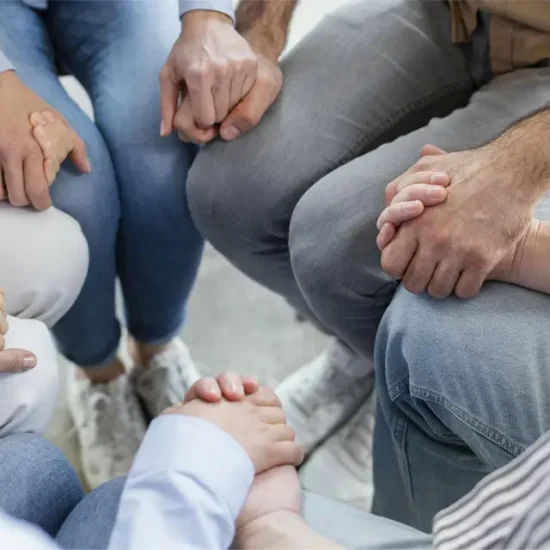Addiction is a complex and pervasive issue that impacts individuals’ mental, emotional, and physical well-being, often rooted in underlying trauma. Traditional treatment approaches sometimes fall short in addressing the multifaceted nature of addiction and its deep-seated causes.
In response, addiction recovery retreats have gained popularity as a holistic and comprehensive solution for those seeking to overcome addiction.
These retreats provide a sanctuary where individuals can heal from trauma and break free from the cycle of addiction in a supportive, structured environment.
This blog explores the key elements that make addiction recovery retreats effective in empowering transformation, examining how they address trauma-related issues and promote sustainable addiction recovery.
This article explores the potential benefits and limitations of addiction recovery retreats. Can these programs truly empower long-term transformation?
We’ll get deep into the promise of intensive therapy, supportive communities, and skill development, while also considering the challenges of post-retreat reintegration, accessibility, and potential limitations in addressing individual needs.
Potential Benefits of Addiction Recovery Retreats
Intensive Focus on Recovery
- Structured Environment: Addiction recovery retreats provide a structured environment away from usual triggers and distractions.
- Deep Self-Reflection: This setting allows for deep self-reflection and exploration of underlying issues contributing to addiction.
A structured environment in addiction recovery retreats removes individuals from their daily stressors and negative influences, enabling them to concentrate solely on their healing journey. This unique setting fosters deep self-reflection and provides an opportunity to uncover and address underlying issues that fuel addictive behaviors, leading to a more profound understanding of oneself and the recovery process.
Diverse Therapeutic Approaches
- Evidence-Based Therapies: Exposure to various evidence-based therapies such as Cognitive Behavioral Therapy (CBT) and Dialectical Behavior Therapy (DBT).
- Holistic Approaches: Inclusion of holistic practices that address the mind, body, and spirit, like yoga, meditation, and art therapy.
Addiction recovery retreats offer a variety of evidence-based therapies, enhancing treatment effectiveness. CBT helps individuals change negative thought patterns and behaviors, while DBT builds emotional regulation and interpersonal skills. Additionally, holistic approaches like yoga, meditation, and art therapy address the mind, body, and spirit, providing comprehensive care that supports long-term recovery.
Supportive Community
- Peer Support: Importance of peer support and building connections with others in recovery.
- Shared Experiences: Potential for shared experiences that foster a sense of belonging.
A supportive community is a cornerstone of addiction recovery retreats. Peer support and building connections with others who face similar challenges provide emotional support and reduce feelings of isolation. Shared experiences foster a sense of belonging, helping individuals feel understood and supported, which is crucial for sustained recovery.
Skills Development and Relapse Prevention Planning
- Relapse Prevention Strategies: Opportunity to learn practical strategies for relapse prevention.
- Healthy Coping Mechanisms: Development of healthy coping mechanisms and life skills for sustained recovery.
Addiction recovery retreats emphasize developing practical skills for relapse prevention and sustainable recovery. Participants learn and practice strategies tailored to their specific triggers and circumstances. Additionally, retreats focus on healthy coping mechanisms and life skills, such as stress management and effective communication, equipping individuals with the tools needed to maintain recovery long after the retreat ends.
Limitations and Considerations
Short-Term Focus vs. Long-Term Sustainability
- Transitioning Back to Daily Life: Individuals may face challenges transitioning back to their daily lives after the retreat, potentially leading to relapse.
- Importance of Ongoing Support: Emphasizing the importance of ongoing support systems and aftercare planning to ensure long-term sustainability in recovery.
Transitioning back to daily life after an addiction recovery retreat can be challenging, as individuals confront familiar triggers and stressors. Without continued support and aftercare planning, the gains made during the retreat may be jeopardized. Therefore, it’s crucial to provide individuals with the tools and resources they need to navigate post-retreat life successfully.
Cost and Accessibility
- Financial Burden: Addiction recovery retreats can pose a significant financial burden for participants.
- Limited Accessibility: Accessibility issues may arise for individuals with limited financial resources, potentially excluding them from these beneficial programs.
The cost of addiction recovery retreats can be prohibitive for many individuals, limiting access to those who can afford them. This financial barrier may prevent individuals with limited resources from accessing the transformative experiences offered by retreats. Addressing cost concerns and exploring alternative funding options can help improve accessibility and ensure that everyone in need has access to effective treatment options.
Individualized Needs and Treatment Matching
- Importance of Individualized Care: Highlighting the importance of matching individuals with the most appropriate type of retreat based on their specific needs.
- Limitations of One-Size-Fits-All Approaches: Recognizing potential limitations of adopting a one-size-fits-all approach to addiction recovery retreats.
Every individual’s journey to recovery is unique, and their treatment should reflect this diversity of needs. Matching individuals with the most suitable retreat ensures that they receive personalized care tailored to their specific challenges and goals. However, adopting a one-size-fits-all approach may overlook the nuanced needs of participants, potentially limiting the effectiveness of the treatment provided.
Addressing Underlying Mental Health Conditions
- Importance of Co-Occurring Disorder Treatment: Emphasizing the importance of addressing co-occurring mental health disorders alongside addiction treatment.
- Need for Specialized Care: Acknowledging that some individuals may require additional specialized care beyond the scope of certain retreats.
Many individuals struggling with addiction also face co-occurring mental health disorders that require simultaneous treatment. It’s essential to address these underlying mental health conditions alongside addiction treatment to achieve comprehensive recovery. However, some addiction recovery retreats may lack the resources or expertise to provide specialized care for complex mental health issues, highlighting the need for integrated treatment approaches that address both addiction and mental health concerns simultaneously.
Conclusion
Addiction recovery retreats offer a transformative and holistic approach to healing, providing a structured environment, diverse therapeutic modalities, and a supportive community that fosters deep self-reflection and personal growth.
By addressing both the symptoms of addiction and the underlying trauma, these retreats can pave the way for long-term recovery and empowerment.
However, it’s essential to recognize the limitations, such as the challenges of post-retreat reintegration, financial barriers, and the need for individualized care that addresses co-occurring mental health conditions.
For those considering an addiction recovery retreat, it is crucial to evaluate your unique needs and seek professional guidance, Join Bhouses to find the most appropriate treatment option. Remember, recovery is a journey, and taking the first step toward healing is a powerful act of self-empowerment.
FAQs
Que: What are the 3 stages of trauma recovery?
Ans: The three stages of trauma recovery are safety and stabilization, remembrance and mourning, and reconnection and integration. The primary focus in the initial stage is to establish a sense of safety and stability, which involves managing immediate symptoms, ensuring physical and emotional safety, and developing coping strategies to deal with distressing emotions and memories. In the second stage, individuals process and grieve their traumatic experiences.
Que: How to release trauma from the body?
Ans: Releasing trauma from the body can be achieved through several methods. Somatic experiencing focuses on releasing physical tension and stress stored in the body by paying attention to bodily sensations and gently guiding the body through the process of releasing this tension. Practices like yoga and mindfulness meditation help individuals become more aware of their body and mind, promoting relaxation and the release of stored trauma.
Que: How to heal from trauma without therapy?
Ans: Healing from trauma without formal therapy can involve several self-help strategies. Prioritizing activities that promote well-being, such as regular exercise, healthy eating, adequate sleep, and relaxation techniques, is crucial. Practicing mindfulness and meditation can help manage stress and promote emotional regulation. Writing about your experiences and emotions in a journal can be a therapeutic way to process trauma. Leaning on friends, family, or support groups for emotional support and understanding is also important.
Que: What does trauma release feel like?
Ans: Trauma release can feel different for everyone, but common sensations and experiences include a sense of relief or lightness, muscle twitching, shaking, or warmth spreading through the body. Emotionally, you might experience crying, feelings of sadness, anger, or joy, and a sense of emotional relief. Some people report increased mental clarity and a sense of calm or peace.










